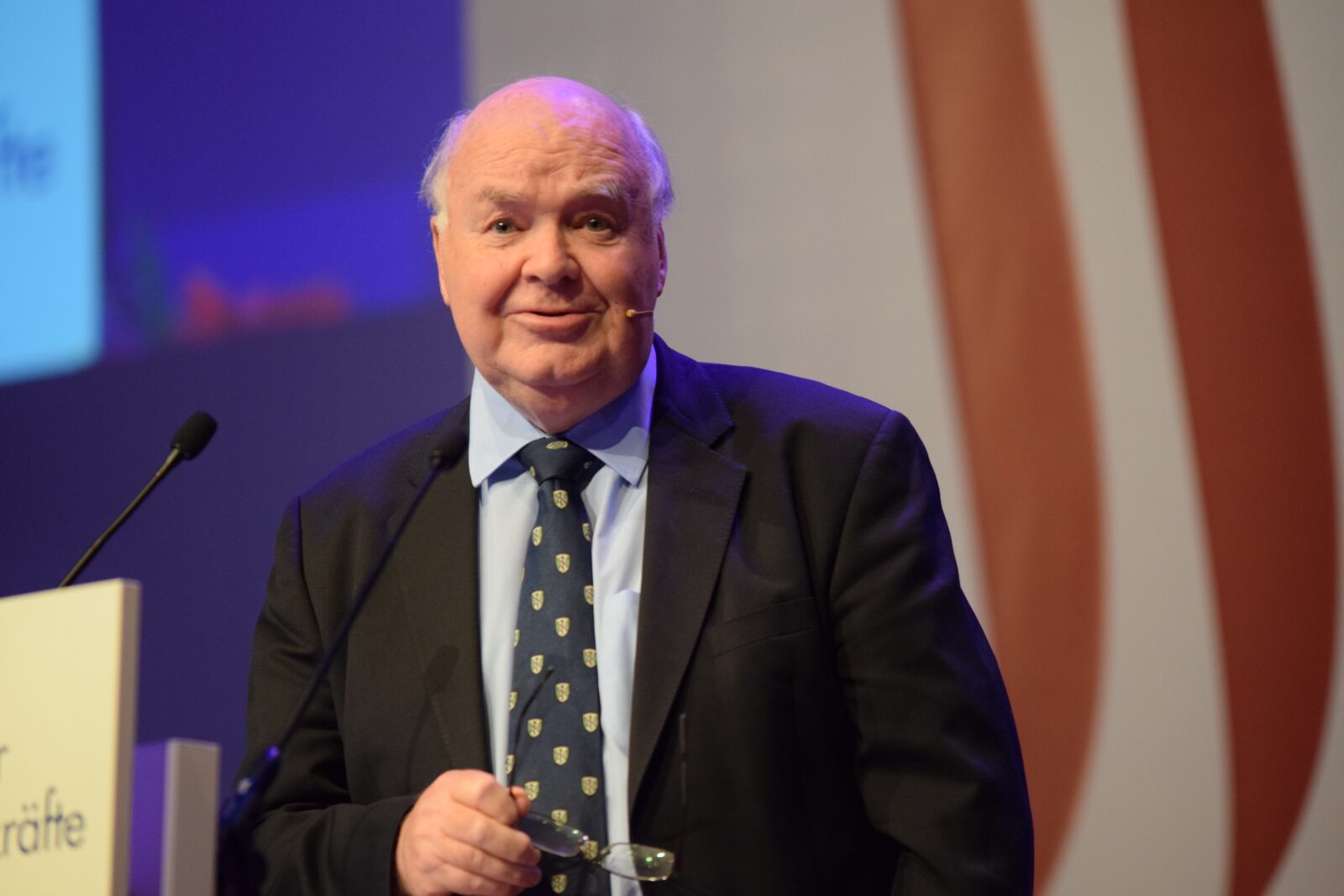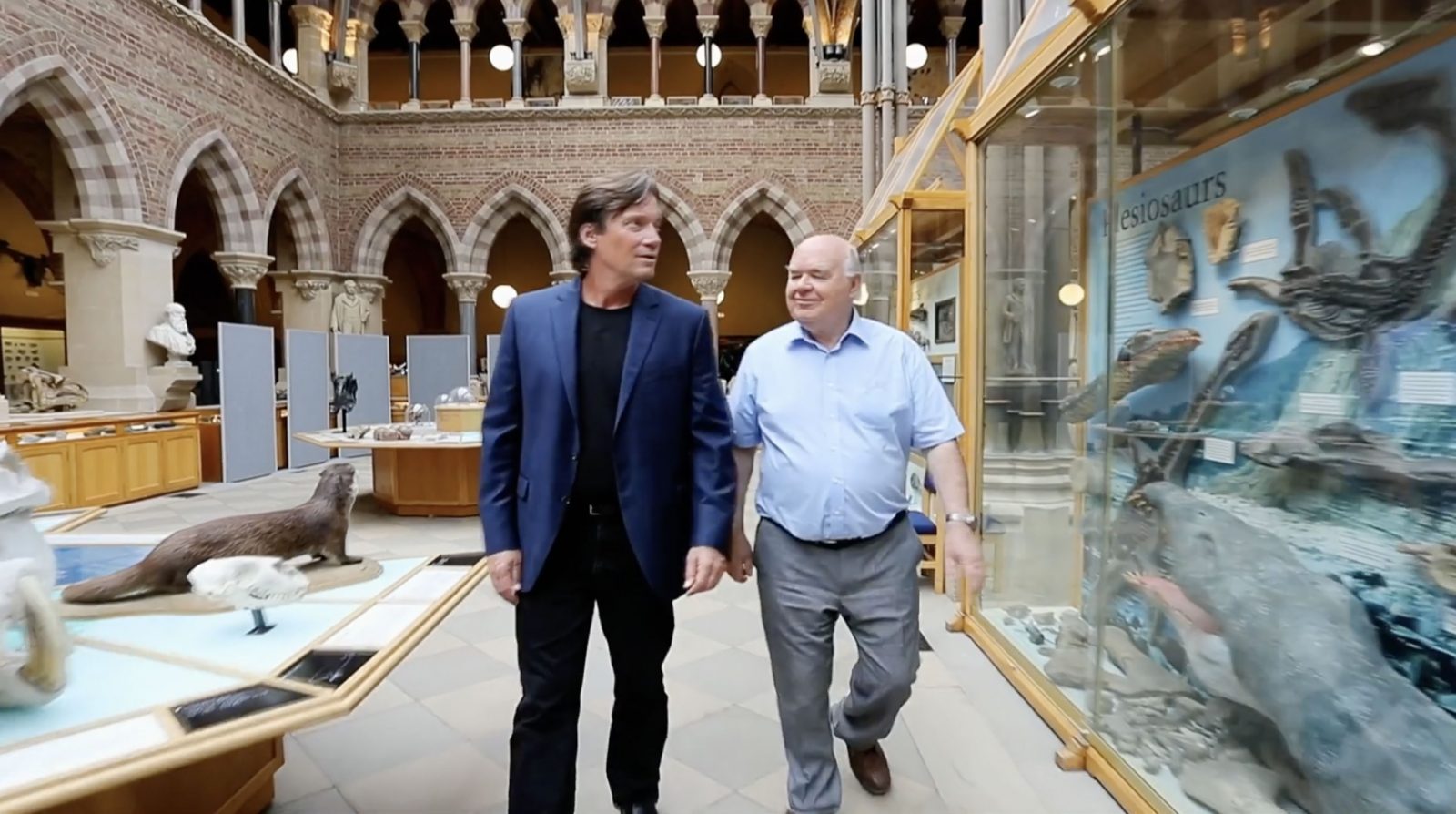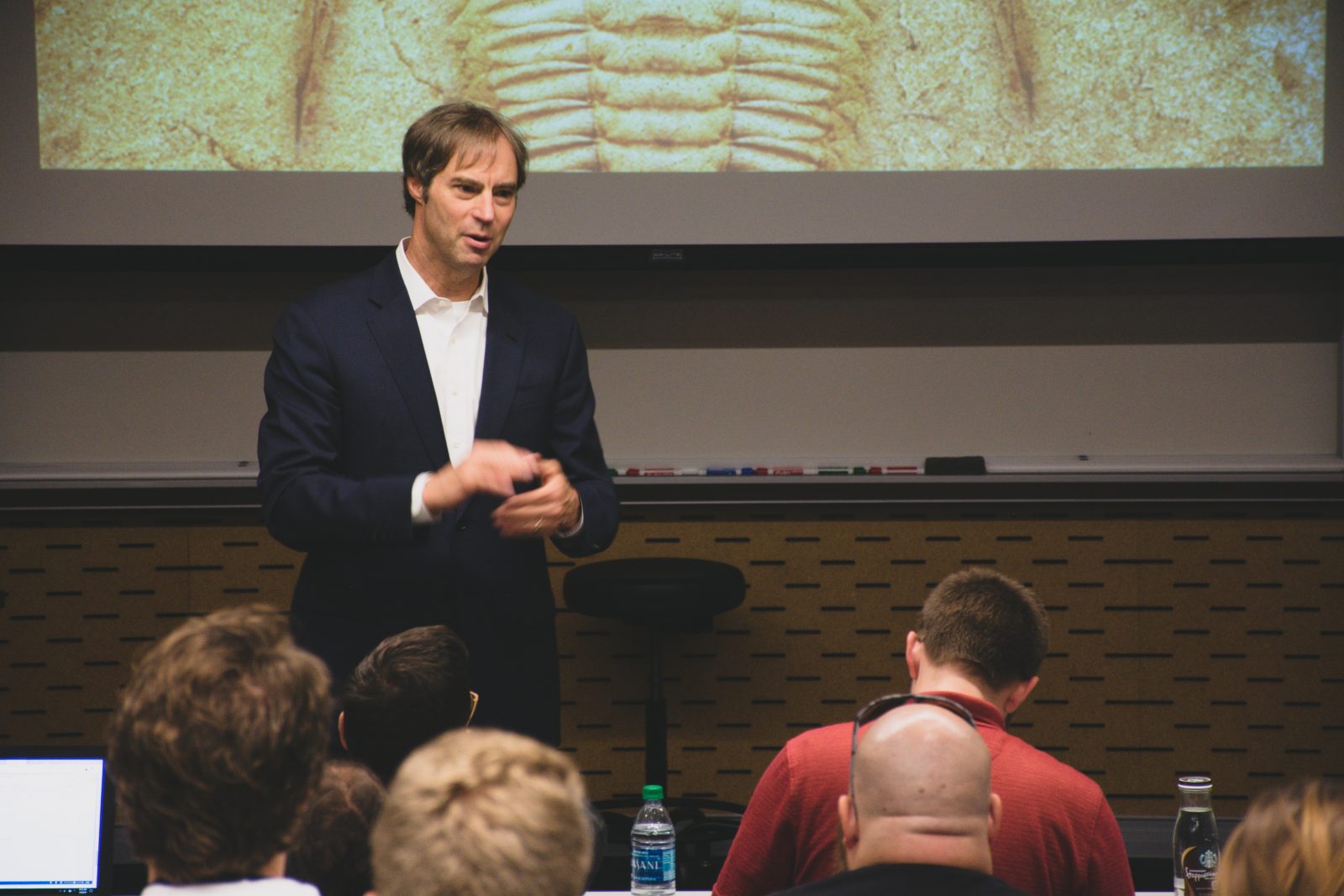


Physicist Brian Miller Answers the Big Bang Evaders
On this ID the Future, physicist Brian Miller looks at various attempts to evade the mounting evidence that the universe had a beginning, a Big Bang. Miller and host Casey Luskin first review the fascinating history of how the eternal universe model of the nineteenth century gave way to the Big Bang model. Then Miller walks through about a half a dozen attempts to evade a cosmic beginning after the Big Bang model had won the day. These evasions include the steady state model, the idea of an eternal cyclical universe, and the string landscape model. According to this model, our universe exists in a multi-dimensional brane (not “brain”) which exists in a higher dimensional space, and our multi-dimensional brane can collide with other branes, with each collision creating a Big Bang moment, a process said to have been going on for all eternity. Miller then explains why each of these attempts to evade a true cosmic beginning fail, and he says that if matter, energy, and space came into existence at the moment of the Big Bang, then it follows that the cause of this cosmic beginning is something immaterial. And since the cosmic beginning was finely tuned in many astonishing ways, Miller says, the cause of the Big Bang has left the signature of intelligent design. The cause, then, is an intelligent, immaterial being and one, obviously, of unimaginable power. Miller and Luskin then touch on a final attempt to evade these implications, the idea that the universe could have popped into existence from nothing—no God, no anything. But as Miller shows, the proposals along these lines, offered by such physicists as Lawrence Krauss and Stephen Hawking, do not actually start from nothing. There is always a something at the ground state, a something whose origin is left unexplained. The occasion for the conversation is Miller’s essay in the recent Harvest House anthology, The Comprehensive Guide to Science and Faith: Exploring the Ultimate Questions About Life and the Cosmos.

Andrew Klavan and Stephen Meyer Talk God and Science
On this ID the Future Stephen Meyer sits down with talk show host and bestselling novelist Andrew Klavan to discuss Meyer’s Return of the God Hypothesis. In this fast-paced conversation the pair touch on the Judeo-Christian roots of science, how fine tuning in physics and cosmology point to intelligent design, and how a great many scientists held out hope that the universe was eternal and therefore did not require a creator, but eventually threw in the towel as evidence mounted for a cosmic beginning. What about the multiverse hypothesis as an escape for atheists wishing to explain away the evidence for a cosmic designer? Meyer explains why it fails Occam’s Razor, and then he and Klavan discuss a noted atheist philosopher who frankly admits that he doesn’t want theism to be true and yet also admits that modern Darwinism has crashed and burned, and the evidence for design in various scientific fields is too powerful to be ignored. Today’s material is borrowed, with permission, from the Daily Wire and Episode 1050 of the Andrew Klavan Show. If you value the work of Stephen Meyer, our other design theorists, and the work of Discovery Institute’s Center for Science and Culture, along with intelligent design resources such as ID the Future, please consider a gift this holiday season. The generous donations of our supporters and regular listeners make this good work possible. Your gift will translate into more and more people encountering—some for the very first time—the powerful evidence that the universe is not meaningless but instead is charged with evidence of design and purpose. Click here to view donation options.

Stephen Meyer and Skeptic Michael Shermer, Pt. 1
Today’s ID the Future spotlights the first part of a lively and cordial conversation between host and atheist Michael Shermer and Stephen Meyer, author of Return of the God Hypothesis: Three Scientific Discoveries That Reveal the Mind Behind the Universe. In this first of the four-part series, the two touch on everything from Meyer’s three key lines of evidence for theism to a quick flyover of less well-known materialistic origins theories, including the oscillating universe model, panspermia as an explanation for the origin of the first life on earth, and Stephen Hawking’s idea of imaginary time. Meyer lumps many of these ideas under what he terms exotic naturalism and suggests that the atheists who defend these explanations are multiplying exotic and unobserved entities to hold at bay a much simpler and more reasonable explanation for the evidence—namely, intelligent design. But is Meyer simply guilty of confirmation bias in arriving at his conclusion? Meyer turns the question around and suggests that it’s those who are wedded to methodological materialism who appear to be led by a confirmation bias. The interview is reposted here by permission of Michael Shermer.

Pat Flynn and Stephen Meyer Talk Thomism and Intelligent Design
On today’s ID the Future, Return of the God Hypothesis author Stephen C. Meyer sits down with podcaster and philosopher Pat Flynn to discuss Meyer’s new book. Flynn notes that some contemporary followers of the great medieval Catholic philosopher Thomas Aquinas argue that the theory of intelligent design is incompatible with Thomism. In response Meyer, a philosopher of science and the director of Discovery Institute’s Center for Science and Culture, points out that some Thomists are fully on board with ID, and he offers reasons why he sees ID as fully compatible with Thomistic philosophy. Flynn and Meyer then move into a discussion of Meyer’s new book with a particular focus on the sections exploring the beginning of the universe and the fine tuning of the cosmos for life. The interview is used by permission of Pat Flynn.

Stephen Meyer Defends His New Book to Cosmologist Brian Keating, Pt. 2
Today’s ID the Future continues (by permission) the long-form conversation between Stephen Meyer, author of the newly released USA Today bestseller Return of the God Hypothesis, and UC-San Diego physicist Brian Keating. Here in part two the conversation turns to quantum cosmology, multiverse hypotheses, Stephen Hawking, and Hawking’s now-you-see-it/now-you-don’t use of imaginary time to deny a cosmic beginning. Meyer argues that Hawking’s imaginary-time trick doesn’t wash, there remains powerful evidence for a cosmic beginning, and that this beginning is best explained as the creation act of an intelligent, immaterial being. Also, Keating and Meyer tackle the question: Did Isaac Newton really blunder by invoking a God of the gaps to periodically tweak the solar system to smooth out perturbations? That is, was Newton led astray by his theism to opt for a science-stopping invocation of God to explain away a problem in his theory? Meyer’s PhD in the history and philosophy of science happens to be from Newton’s university, Cambridge, and Meyer says that he researched the issue in particular and no, the oft-repeated claim is a myth. What is true, Meyer says, is that Newton, Kepler, and other founders of modern science were inspired to search out and find the rational order hidden in nature because they were theists, convinced that nature was the work of a rational Creator. Check out Keating’s website here, and get a copy of Meyer’s new book here.

John Lennox Against the Tide of Atheism
On this ID the Future, John Lennox tells about discovering the damage atheism does to people, by seeing it firsthand in communist Eastern Europe and the former Soviet Union, and seeing what it does to rationality itself. In his continuing conversation with host and philosopher of science Stephen Meyer, Lennox relates how in his interactions with famous religiously skeptical scientists, he emphasizes that the Judeo-Christian worldview did much to give us science. When skeptical scientists ask the Oxford mathematician and philosopher how Christianity could have anything to say to science, Lennox is ready with an answer. This is the second part of a three-part conversation in which Lennox discusses his new documentary, Against the Tide, filmed with actor and host Kevin Sorbo.

John Lennox and Steve Meyer Against the Tide, Pt. 1
On this ID the Future, Stephen Meyer and Oxford University mathematician and thinker John Lennox begin a three-part conversation about Lennox’s upcoming documentary, Against the Tide: Finding God in an Age of Science. As Lennox explains, he grew up as the child of a uniquely non-sectarian Christian family in Northern Ireland, with parents who encouraged him to question broadly, read widely, and respect every person as a creature made in the image of God. He tells of his encounters with C. S. Lewis at Cambridge University, relates a humorous story in which atheist Peter Atkins gave him the title of one of his books, and describes his front-row seat as he watched the scientific atheism of the 1960s transform into the aggressive and contemptuous New Atheism of more recent years — a story that includes Lennox’s own debate with Richard Dawkins.

Stephen Meyer on His CSC Summer Seminar Talks
On this episode of ID the Future, Stephen Meyer, Director of the Center for Science and Culture, discusses the two lectures he gave to a private audience at Discovery Institute’s 2019 Summer Seminar on Intelligent Design. One talk focused on the fossil record, and the other on the Big Bang.